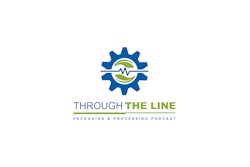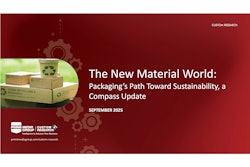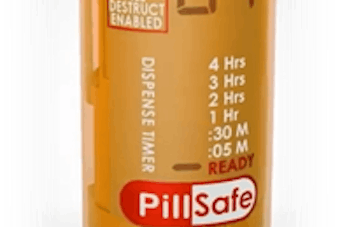Specifically, the company announced that the first 30 patients to receive the Absorb stent demonstrated no MACE (Major Adverse Cardiac Events), such as a heart attack, and no stent thrombosis at 30 days.
The stent is made of a polylactic acid, that an Abbott press release says, "is designed to be fully absorbed and slowly metabolized by the coronary artery." The stent is coated with a drug called everolimus that's released into the artery and then slowly absorbed over time. The goal is to leave a healed natural vessel behind.
Absorb differs from drug-eluting metal stents that remain in the patient's artery after the drug is completely used. Drug-eluting stents are probably the best-known combination product, with the metal stent serving as the medical device and the drug as the pharmaceutical.
"We are eager to explore Abbott's bioabsorbable technology as a potential clinical option for the treatment of coronary artery disease," said Auckland City Hospital cardiologist Dr. John Ormiston, in an article from The New Zealand Herald. Ormiston is a co-principal investigator of the study. He noted that the Absorb stent dissolves naturally into carbon dioxide and water once it's eluted the drug into the coronary artery to help prevent restenosis.
Initially, Abbott responded to Healthcare Packaging's questions about how the Absorb stents are packaged, but later declined, indicating that it was too early in the process to divulge details.
The company's press release described the Absorb trial as "a prospective, non-randomized (open label) study [that] has been designed to enroll up to 60 patients in Belgium, Denmark, France, New Zealand, Poland, and The Netherlands." The study will assess the stent's safety at 30, 180, and 270 days, with follow-ups at 180 days and two years.
--Jim Butschli, Editor
The stent is made of a polylactic acid, that an Abbott press release says, "is designed to be fully absorbed and slowly metabolized by the coronary artery." The stent is coated with a drug called everolimus that's released into the artery and then slowly absorbed over time. The goal is to leave a healed natural vessel behind.
Absorb differs from drug-eluting metal stents that remain in the patient's artery after the drug is completely used. Drug-eluting stents are probably the best-known combination product, with the metal stent serving as the medical device and the drug as the pharmaceutical.
"We are eager to explore Abbott's bioabsorbable technology as a potential clinical option for the treatment of coronary artery disease," said Auckland City Hospital cardiologist Dr. John Ormiston, in an article from The New Zealand Herald. Ormiston is a co-principal investigator of the study. He noted that the Absorb stent dissolves naturally into carbon dioxide and water once it's eluted the drug into the coronary artery to help prevent restenosis.
Initially, Abbott responded to Healthcare Packaging's questions about how the Absorb stents are packaged, but later declined, indicating that it was too early in the process to divulge details.
The company's press release described the Absorb trial as "a prospective, non-randomized (open label) study [that] has been designed to enroll up to 60 patients in Belgium, Denmark, France, New Zealand, Poland, and The Netherlands." The study will assess the stent's safety at 30, 180, and 270 days, with follow-ups at 180 days and two years.
--Jim Butschli, Editor


















